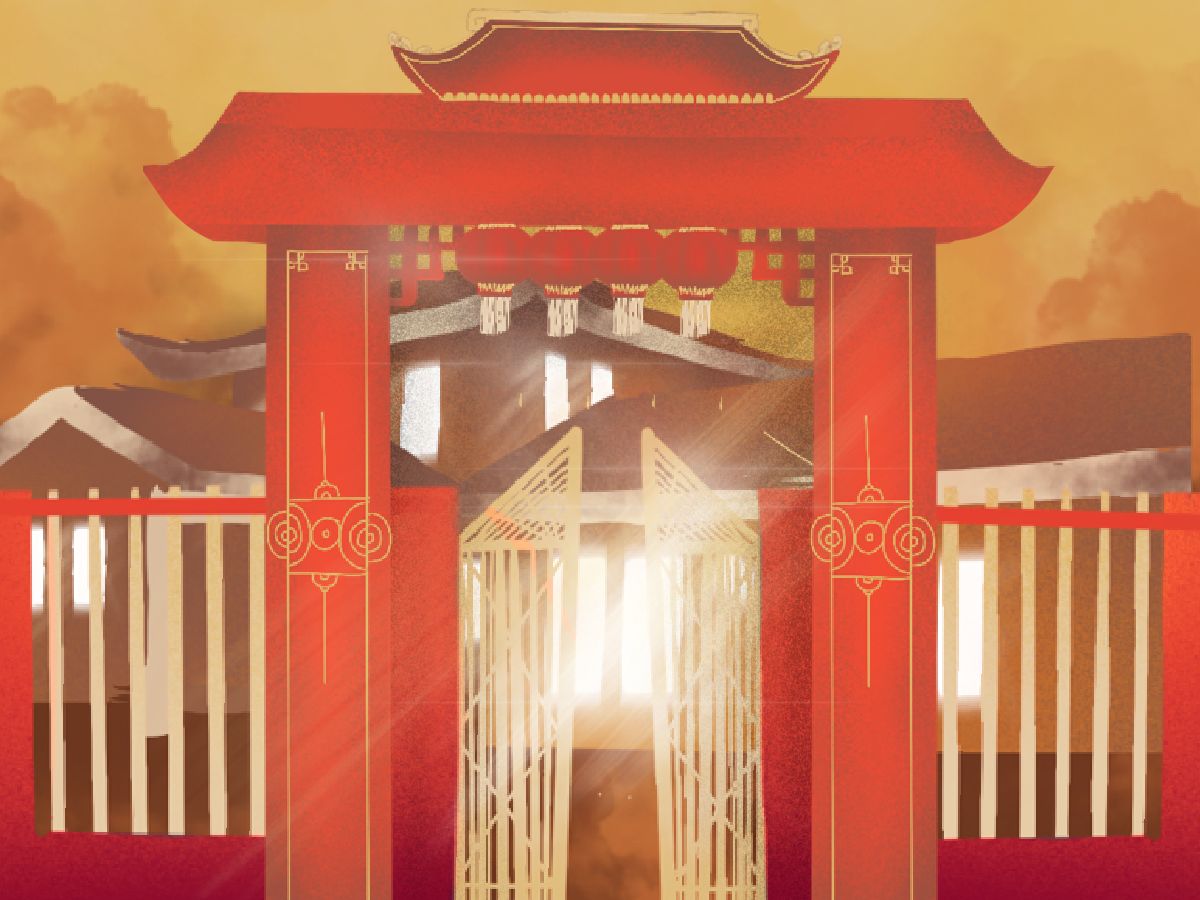WITH A RELATIONSHIP that dates back to pre-colonial times—built from economic ties and shared cultural identities—it’s no wonder that the Filipinos and the Chinese have managed to adapt to each other’s cultures. One such manifestation of this would be how, every January, the Filipino-Chinese community paints the country red during the Lunar New Year season with a myriad of traditions that promise luck for the rest of the year. Another undeniably prominent assimilated custom would be feng shui—a routine that Filipinos and Tsinoys alike have integrated into their living spaces and everyday lives in hopes of achieving harmony and success.
Originating from ancient China, feng shui or Chinese geomancy traditionally seeks to use energy forces so that an individual may harmonize with their surrounding environment. To pursue this harmony, feng shui must be integrated in the home and in people’s day-to-day lives. This integration takes form in ritual practices, artifacts, architectural and interior design of the home, and predictions about one’s fortune in the coming year.
Feng shui pervades spaces all around us, whether consciously or not: In Filipino-Chinese restaurants and establishments, and in the structures and the buildings of our own homes. However, beyond this, feng shui is faced with the challenge of keeping up with the times. In more modern contexts, the practice must find ways to remain relevant lest it becomes a thing of the past.
Tracing traditions
Feng shui expert Hanz Cua ties the Chinese tradition back to its root words, with feng meaning “wind” and shui translating to “water.” Tradition often points back to feng shui being named such because of how essential both elements are in everyday life: One would not be able to live without either wind (also commonly interchanged with “air”) and water.
The biggest concerns of feng shui have always been about space, namely the door, bedroom, and kitchen. According to Cua, doors are where the chi or energy moves around the house, as such door placement and color are elements one ought to consider when it comes to architecture. The arrangement of bedroom furniture is also valuable because the bedroom is where one re-energizes. Meanwhile, kitchen logistics are also valued because food is meant to signify money and prosperity.
Beyond spacing and positioning, feng shui is often integrated with Chinese astrology for maximum effectiveness. Hence, practicing feng shui involves a variety of complex formulas that are dependent on one’s astrological sign, emphasizing how multi-faceted the practice has become.
While feng shui’s roots can be misinterpreted as purely religious or superstitious, Cua debunks these by saying that it’s actually a science: “It is not something mystical or merely superstition. May tamang placement, may formula na fino-follow, [at] bine-base ‘yan sa arrangement ng bahay (There are correct placements and specific formulas to follow based on the arrangement of the house).” Cua emphasizes that feng shui requires serious studies—many practitioners even enroll in feng shui schools to learn about its scholarship and history.
To claim, then, that feng shui is a rigid practice would ignore its capacity for adaptation, as witnessed by modern trends in architecture and interior design. “Iba na ang mga bahay ngayon. Dati wala namang condominium [at] high-rise na building, so itong modern feng shui masters natin ngayon ay nagbabago na ang mga feng shui formula. Continuous study and research lang [ang kailangan para sa mga pagbabago sa feng shui],” Cua notes.
(Houses are different now. There weren’t any condominiums and high-rise buildings before, so modern feng shui masters now have updated their feng shui formula. Continuous study and research [is needed as we relearn feng shui]).
In the mundane and the everyday
In terms of how feng shui transcends the structure of the household and shows itself in everyday living, Jared Ong (2 BS ME) shares how the observance of feng shui has been common practice in his home for as long as he could remember. “It’s not that much of a big deal for us as in we obsess over readings. It’s just that my family and I just use it as a guide and as points for reflection throughout the year,” he says.
Ong happily recalls how feng shui has helped him be more judicious with the major decisions he has to make in his life. However, he adds that feng shui is not the ultimate determinant of his choices. A similar mindset is reflected in Ong’s family, who he claims are not the type to “obsessively follow” feng shui rituals; instead, they treat it like a guide.
He uses his household’s table and decor as an example. “[We] change the table every year… [It usually] depends on the feng shui master and what they recommend for the year; [you] change tables to attract success. For example, this year, metal is the lucky [element] so the table should be metal also,” Ong explains. He adds that they always have fruits hanging by the door for good luck and prosperity, and they make sure to have a convex bagua mirror to bounce away any negative energy reflected in their home.
Rather than using feng shui as a tool to attract luck in all aspects of life, Lim* (2 BS ME) takes a rather different approach to feng shui and says that he and his traditionally Chinese family don’t really observe feng shui unless it involves business.
Lim shares that his family usually consult with feng shui experts prior to employing someone. “For example, the feng shui master [will tell] us if the person can be trusted with money [and] property, whether the person is hard working or not, respectful or not,” Lim says. He adds that, so far, their feng shui master’s observations have been right.
“Feng shui is a heritage from China and I still follow it because the predictions are accurate,” Lim asserts. “More than this, it’s part of the identity that I inherited with my ancestors.”
Goal of prosperity
While Ong and Lim observe feng shui because it is rooted in their lineage, other cultures—particularly our own—have also begun to subscribe to the practice.
Cua finds that he has more Filipinos coming to his office for feng shui consultations than Chinese clients, which he suggests is because of how our cultures have become so tied with each other. Ultimately, though, he points out that everyone’s goal is to become successful in all aspects of life. “Everybody, mapa anong lahi ka, gusto nating ma-improve buhay natin (Everybody, regardless of race, wants to improve their lives),” he says.
Feng shui’s appeal lies in the possibility of success, and Cua acknowledges that Filipinos want that more than anything else. “We know that feng shui will enhance good health, fertility, good harmony for the family members; ‘yung mga magandang connections sa bahay (good connections with the house) can enhance good fortune and good luck. Generally, good feng shui will enhance prosperity, money, [and] luck sa family members,” he says.
Regardless of where one may come from, success remains a goal and dream for all, and through feng shui we invite it in our spaces and our daily lives. Whether it is Chinese New Year or not, feng shui is a practice of promise for everyone—it’s definitely worth a shot.
Editor’s note: The name of the interviewee has been changed at their request in order to protect their identity and privacy.







